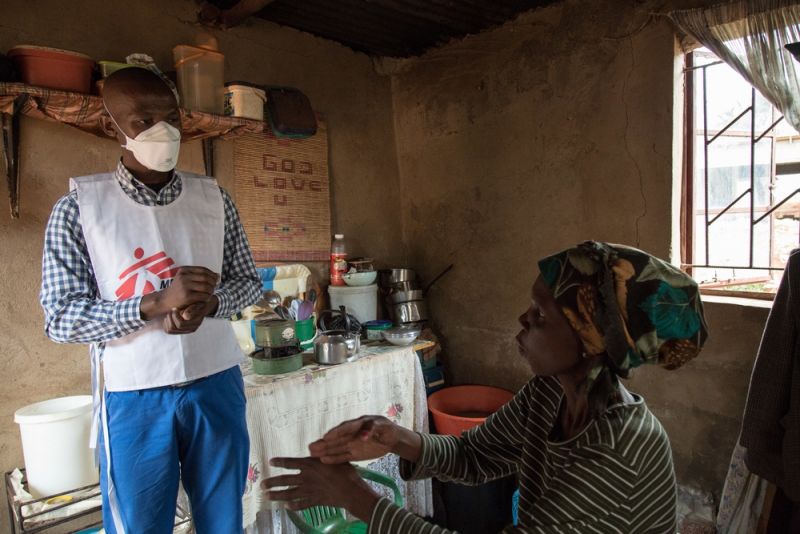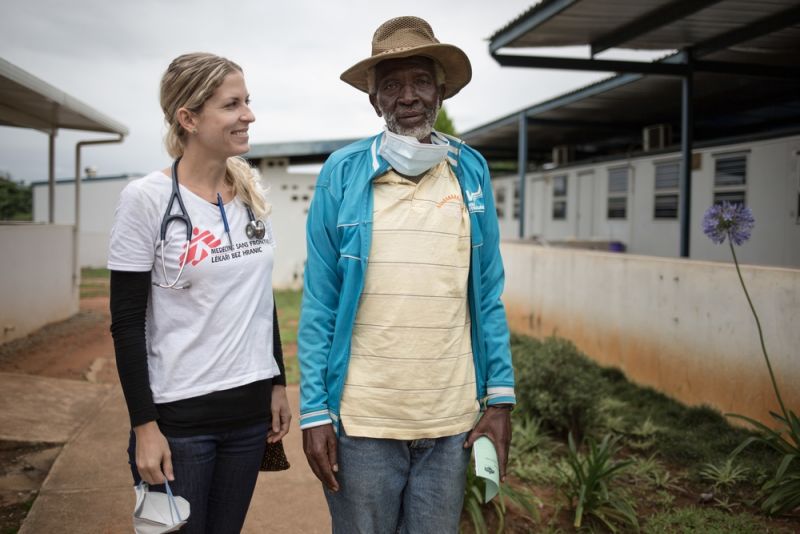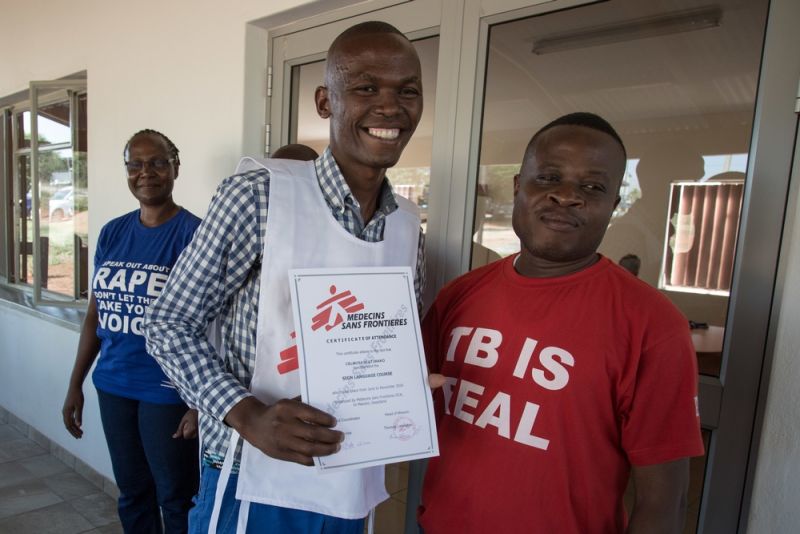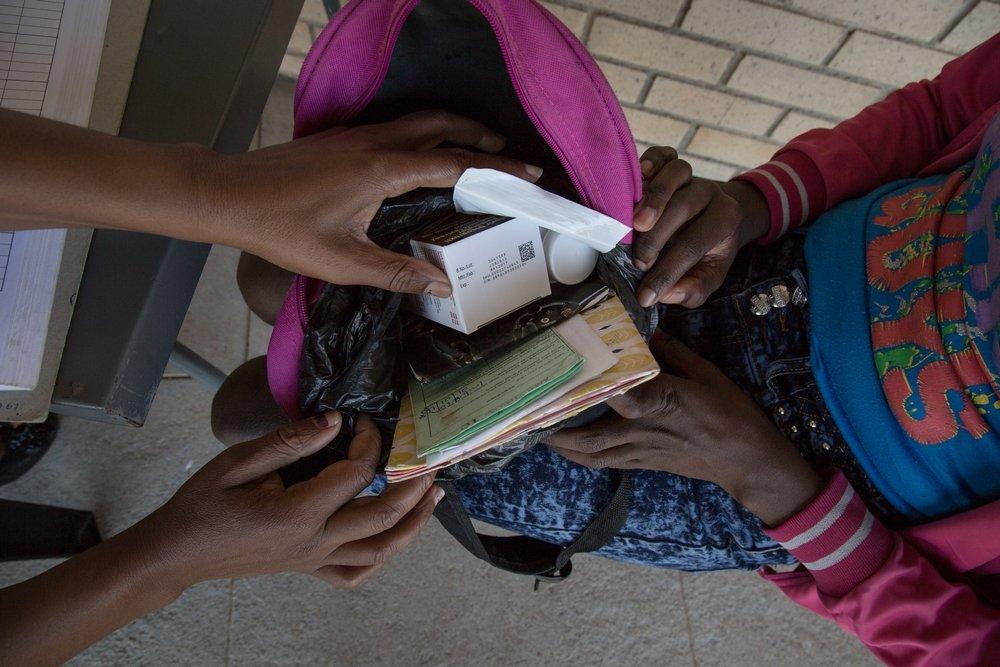Eight years after the medical humanitarian organisation Doctors Without Borders (MSF) opened an emergency intervention in the Manzini Region to help the Ministry of Health manage the dual HIV/AIDS and Tuberculosis (TB) epidemic, in a mark of its success, the project is being handed over to national service providers.
‘As the original objectives of the project have been achieved, with the number of new HIV and TB infections going down significantly, MSF is scaling down its medical activities in Eswatini and will be handing over the Manzini project to the Ministry of Health at the end of June 2018.’
‘While the need for high-quality TB and HIV care remains, great gains have been made in the fight against HIV/AIDS and TB in Eswatini. This includes positive developments in the testing and treatment of HIV and TB in Swaziland including decentralization of HIV and TB care, HIV test and treat, introduction of new diagnostics for TB and introduction of shorter treatment regimens and new medicines for Drug-Resistant TB (DRTB)’ said Audrey van der Schoot, Head of Mission for MSF in Manzini.
‘Since 2010, the number of new HIV infections (incidence rate) amongst adults in Swaziland decreased from 2.5 per cent to 1.4 per cent, whilst the proportion of the population infected with HIV (prevalence rate) decreased from 32 per cent to 30 per cent. By 2017, 85 per cent of HIV cases were diagnosed, whilst 87 per cent of the HIV cases were on antiretroviral treatment (ART) with 91 per cent viral load suppression.
By the end of 2017, there were 174,103 patients on ART. The TB incidence decreased from 1320 cases per 100,000 persons in 2010 to 388 cases per 100,000 persons per year in 2017. The number of TB cases decreased with 71 per cent with 11.057 cases diagnosed in 2010 to 3226 cases diagnosed in 2017. The multidrug-resistant TB incidence dropped from 7 per cent in 2010 to 3 per cent in 2017.
A 44 per cent decrease in drug-resistant cases has been seen between 2013 with 566 cases and 318 cases in 2017 in newly diagnosed TB cases.’

‘The handover of these projects does not spell the end for MSF in Eswatini. The MSF Manzini program in the Mankayane sub-region and Manzini region will be managed by the Ministry of Health while the Matsapha Comprehensive Clinic has been handed over to the AIDS Healthcare Foundation (AHF) and patients will continue to receive care.
MSF will continue its activities in Shiselweni, assisting patients and the Ministry of Health,’ said Serge Kabore, Head of Mission for MSF in Shiselweni.
MSF set up the - Shiselweni program in 2007 to address the dual HIV/AIDS and TB epidemic. At that time, the number of TB, DRTB and HIV cases was greatly increasing, and in 2009, MSF also started a TB- HIV program in the Manzini Region.
In the Manzini Region, MSF has been supporting the Ministry of Health, the National TB Control Program and the National TB AIDS Program to improve diagnosis and treatment of HIV and TB. The program focusses on the most difficult to treat, resistant forms of TB, working in health facilities in Mankayane sub-region, Matsapha and the Moneni National TB Referral Hospital (NTBH).
In Mbabane, MSF has been supporting the National Laboratory Services with technical support, training, Human Resources and rehabilitation in the TB laboratory for Culture and Drugs Sensitivity testing.
In Matsapha, MSF has been setting up a comprehensive one-stop health clinic where HIV, TB and DRTB care was complemented with Outpatients care, Non Communicable Disease Care and treatment, Immunisation, Ante Natal Care, Family Planning and Care for survivors of Sexual Violence.
‘We would like to thank the Ministry of Health and the local communities for hosting us all these years. We also want to take this opportunity to thank our staff for the positive spirit that they brought because it is not easy to work in a medical environment and always being physically and emotionally available to our patients.
We hope that together we have made a difference that has benefitted Swazi patients,’ said Audrey van der Schoot.
‘Thank you so much for sticking it out with us to the end and thank you so much for your contribution throughout the years, we have no doubt that this great work will continue, in the hands of the Ministry of Health and other partners.’ Audrey van der Schoot added.

Milestones
From 2009 when MSF first conducted an assessment in Manzini region to the end of 2017, MSF has invested Euro 25.6 million (E367 million) in medical operations.
This includes construction projects such as the set-up and construction of Matsapha Comprehensive Clinic, rehabilitation of the National TB Reference Laboratory, rehabilitation of the Mankayane Hospital TB ward, construction and rehabilitation of the Mankayane (DR) TB HIV Outpatient Department, construction in Mpuluzi, Mahlangatsha, Musi and Luyengo health facilities in Mankayane sub-region and construction and rehabilitation in the NTBH Outpatient Department.
230,400 patients were treated between 2011 and 2017 for respiratory infections, diarrhoea, sexually transmitted infections, skin diseases, hypertension and diabetes in the outpatient department.
78,500 people were tested for HIV and 7303 newly diagnosed patients were initiated on ART; 5238 patients were treated for Drug Sensitive TB with an 80 per cent success rate and 862 patients were treated for DRTB of which 258 were initiated on the new medicines.
A shorter regimen to treat Multi-Drug Resistant (MDR) TB was introduced by MSF in 2014 which shortened the conventional 20-month regimen to only nine months. This regimen has shown a 75 per cent success rate and has made it easier for patients to follow whilst they can also earlier resume their social and working activities.
Next to this, the cost of the shorter regimen is only 25 per cent of the conventional regimen.
This shorter regimen has since been recommended by the World Health Organization and was adopted by the Ministry of Health as the new national standard of care for MDR-TB treatment from 2017, with MSF providing support.
New drugs for treating MDRTB and Extensive Drug Resistant (XDR) TB were introduced in 2015 by the National TB Control Program in Eswatini with the support of MSF. It has taken more than 50 years to develop new medicines and Bedaquiline and Delamanid have proven to be very effective in treating MDR TB and XDR TB. In 2015, 287 DRTB patients were treated with these new medicines with excellent results.

MSF has introduced a patient centred, decentralized approach to treat Multi-drug resistant TB patients. This treatment and care can be given as inpatient, outpatient, at home or in a hospice. Psychosocial care is also a very important component to support the patients and has shown improvements in overall adherence by reducing barriers to treatment.
Psychosocial care includes adherence counselling, patient support groups, community treatment supporters, food packages, transport allowances to go to the clinic, home assessments and housing support where needed, occupational therapy and sign language training for patients who have become deaf as a side effect of treatment.
Background
MSF is an independent international medical humanitarian organisation that delivers medical care to people affected by armed conflicts, epidemics, natural disasters and exclusion from health care.
MSF often works alongside national health authorities to treat patients in a wide variety of settings, including chronic conflict zones, urban slums, prisons, refugee camps and rural areas.
FOR MORE INFORMATION & INTERVIEWS CONTACT:
Nomfundo Msibi | Communication and Advocacy Manager, MSF Swaziland | Mobile +268 76463383 | msfch-swaziland-com@geneva.msf.org
Find out more about MSF's work in Swaziland.
